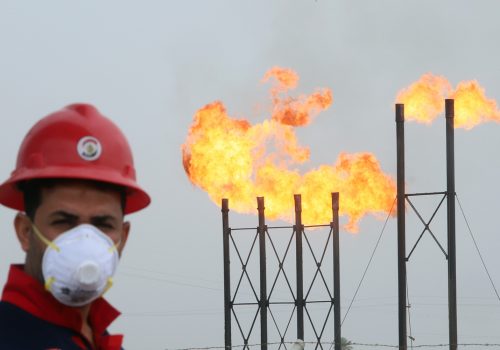Issues
Energy & EnvironmentAll Content
Irina Markina was a nonresident senior fellow at the Atlantic Council’s Global Energy Center and the director of impact and sustainability at Ara Partners. Ara Partners is a global private equity firm focused on industrial decarbonization; it targets attractive risk-adjusted returns by investing in buyout and growth assets with significant potential to reduce greenhouse gas (GHG) emissions. Markina oversees the firm’s sustainability strategy and long-term integration of environmental, social, and governance (ESG) issues across Ara Partners’s investment portfolio. Prior to joining the firm, Markina was the corporate sustainability manager at Baker Hughes, one of the world’s largest energy technology companies, where she was instrumental in building out a sustainability team and operationalizing the corporate net-zero strategy and ESG diligence process in mergers-and-acquisitions transactions. Markina’s work on sustainable finance and decarbonization draws on a decade of her regulatory experience. Markina served as the senior energy advisor at the European Union Delegation to the US, where she directed the European Commission’s cooperation on energy and climate policy issues with US government agencies. Prior to joining the EU Delegation in Washington, DC, Markina served at the European Parliament based in Brussels, where she advised lawmakers on the Panel for the Future of Science and Technology and managed legislation on decarbonization.
At the Atlantic Council’s Global Energy Center, Markina has published on transatlantic energy and climate issues. She completed executive education at the Wharton School of the University of Pennsylvania and the Harvard Business School, and she holds a Master of Science degree in public policy from Lund University in Sweden.




